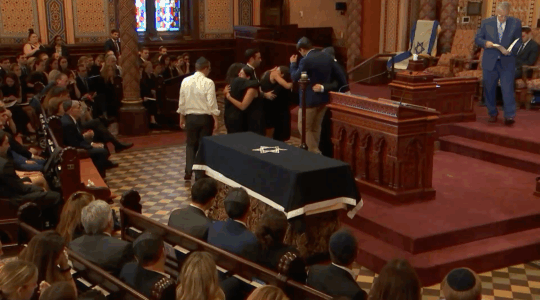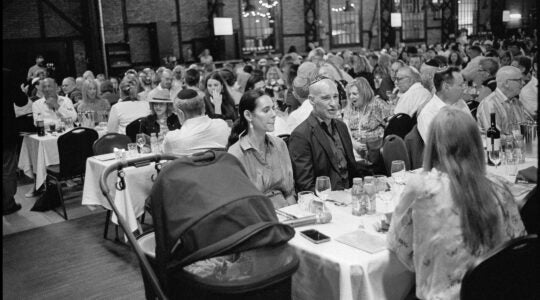After the drama of the High Holy Days, we have returned to the beginning of the Torah. Early on, in chapter 19, we meet a character who has much to teach us, although she is with us only a short time: Lot’s wife. She is almost anonymous; her reactions to being told to leave her home in Sodom are not shared. We know only that she turns around to look behind her at the city they are escaping, and turns into a pillar of salt for all eternity.
What was her name? Why was she turned into salt?
We call her “Lot’s Wife.” Like many characters, mostly women, she was not given a name in the Torah text. Most infer from this that Lot’s Wife is just not important enough to be named, yet I have always found her to embody a powerful cautionary tale of fear and longing.
The angelic visitors to Lot’s home command him to flee the town of Sodom and not look back as it is destroyed the fire and brimstone. Yet Lot’s Wife disobeys. A number of rabbinic sources provide their own answers as to why.
Targum Yerushalmi speculates, “And because the wife of Lot was from the sons of sons of Sodom, she looked back to see what would be the end of her father’s house.” Bereshit Rabbah elaborates on this by telling us that she had two married daughters who were left behind in the destruction.
A modern commentary, The Five Books of Miriam, writes in Lot’s wife’s voice: “I looked back to all that I had left behind – my friends and relatives, my home with its cherished mementos, my childhood – and I wept. And so hot was the desert sun and the brimstone torching Sodom that my flowing tears dried instantly, turning me into a pillar of salt.”
This leads to a new question – is she a warning or a monument?
We all waver in a delicate dance between past nostalgia and future potential. We all know what it feels like to get stuck somewhere, to look back longingly when we should be moving forward, to be turned into a pillar of the past.
Perhaps we do so in regret, mired in wishes that events had turned out differently or that we had acted differently. Perhaps we miss someone: a loved one no longer with us, or a relationship long over or an estranged family member. Perhaps we relive a former moment of glory, enjoying the memory of the moment, but no longer reaching for new accomplishments or achievements.
Perhaps we are scared, knowing that we must take a risk or a leap forward, or make a change in our lives, yet not sure how to proceed.
Rather than remaining there eternally merely as punishment, I think that Lot’s Wife, whatever we call her, stands as a signpost at the crossroads. She shows us what happens to us when we become stagnant or inert. We freeze there forever, unless we are able to look forward to take those first important steps. When remembering Lot’s Wife, let us look ahead, squinting our eyes into the bright future, pulling away the cobwebs that form, taking those tentative, anxious steps that eventually lead us to a new chapter of our own stories.
Rabbi Marci Bellows is a spiritual leader at Temple B’nai Torah community in Wantagh, Long Island. A native of Skokie, IL., she earned a B.A. in Psychology from Brandeis University and a Masters in Hebrew Literature in 2003 from Hebrew Union College-Jewish Institute of Religion. She was ordained in 2004.
The New York Jewish Week brings you the stories behind the headlines, keeping you connected to Jewish life in New York. Help sustain the reporting you trust by donating today.




